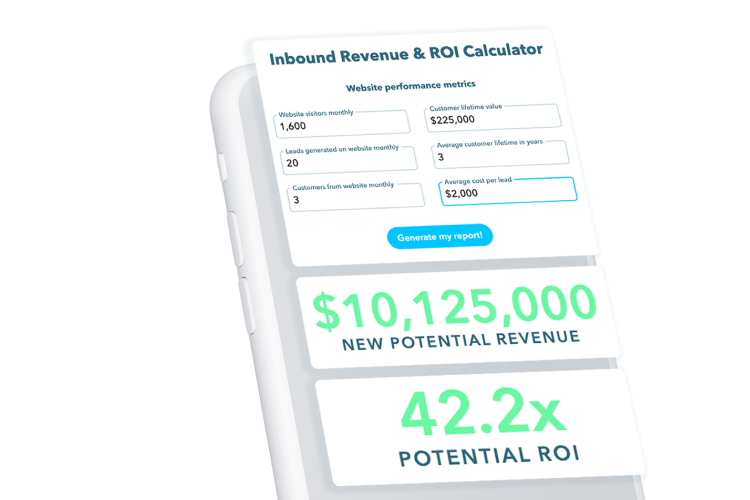 March 8, 2024
March 8, 2024 2630 Views
2630 Views  3 min read
3 min readChoosing a Customer Relationship Management (CRM) is a big decision as it will help you manage your customers and potential customers through the sales funnel. Marketing automation will help streamline and optimize your marketing campaigns. A CRM with marketing automation creates a better-personalized customer experience. CRM and marketing automation are potent tools that serve different purposes. When integrated, they maximize their benefits for actionable insights that can significantly enhance lead generation efforts.
We will look at their differences and how using them together will help build relationships before a lead is sent to sales, how it helps provide a seamless journey from visitor to customer, and how it helps keep consistent messaging and nurture leads.
A CRM helps you better understand your leads to improve business relationships by communicating better with them.
Marketing automation enables you to use the insights from the CRM to nurture leads and help turn them into customers, focusing on automating marketing activities—such as campaign management and customer segmentation.
Most platforms will include these features:
Email marketing – the ability to send large amounts of emails simultaneously.
List segmentation – the ability to segment your contacts by filters (for example, customer versus potential customer or by different behaviors) List segmentation comes in handy when you have different buyer personas in your database.
Customer journeys – the ability to pre-set a series of touch points for a prospect or a lead, nurturing them from their first touch through becoming a customer and advocate. Diving into it, HubSpot provides customer journey analytics that depicts how efficient and varied your customer journey is for visitors, contacts, and customers.
Forms – the ability to create and put a form on a landing page or website to collect data.
Lead scoring – rate your prospects that are more likely to close based on their actions.
Reporting – see how your campaigns perform and what adjustments you can make.
Integrating your CRM software with marketing automation promotes efficiency.
You can assign leads to an email nurture cadence based on their actions within the CRM.
Sending the most relevant content to your potential customers at the best time will help shorten the sales process. As your leads go through the content and become more familiar with your solutions, you can score them based on their activity. This will enhance the leads you send to the sales team. Lead scoring attempts to measure the readiness of a lead to move further in their buying journey. For example, if a lead accesses an online demo, that would indicate a higher level of interest than downloading a top-of-funnel/awareness content asset.
Lead scoring identifies your most promising leads. Marketing automation tools rate lead scoring by tracking online behaviors, email engagement, and other activities. Based on the CRM data, emails and content can be sent to leads at different funnel stages.
As part of the lead generation strategy, marketing automation helps track the number of leads at different stages and how fast they move along the buying journey. Information like this is critical in delivering relevant content at the right time. CRM software helps to streamline prospecting, lead capture, and lead scoring. CRM performance indicators are used for both sales and marketing. Sales metrics to assess the effectiveness of CRM implementation include the length of each sales cycle stage, lead quality, and close rate. Marketing metrics include customer lifetime value, acquisition cost, and email marketing metrics.
Are you starting to see the power in what can happen when these two work together? By combining the strengths of a CRM with marketing automation, your business can create a seamless and efficient lead generation process, driving better results and building trust and long-term relationships.
Responsify helps B2B organizations grow by creating educational and engaging content for their audience to drive traffic, generate leads faster, and rank higher. With Responsify, you’ll immediately have an entire team of dependable and cost-effective talent at your fingertips. We’d love to understand your challenges and help you explore new opportunities in lead generation. Get an assessment now.
Combining CRM and automation enables better lead scoring, personalized nurturing, and data-driven decisions, improving conversion rates.
Essential features include lead tracking, automated email campaigns, analytics, and sales funnel integration.
Automated workflows nurture prospects based on behavior, assign lead scores, and identify high-intent leads for sales teams.
Metrics like lead conversion rates, engagement levels, and sales cycle efficiency help evaluate effectiveness.
Issues like data silos, poor adoption, and lack of strategy can be resolved with proper training, data cleaning, and alignment between sales & marketing teams.
HubSpot, Salesforce, Marketo, and ActiveCampaign are popular choices. Need help choosing the right solution? Schedule a consultation with Responsify to find the best fit for your business.
